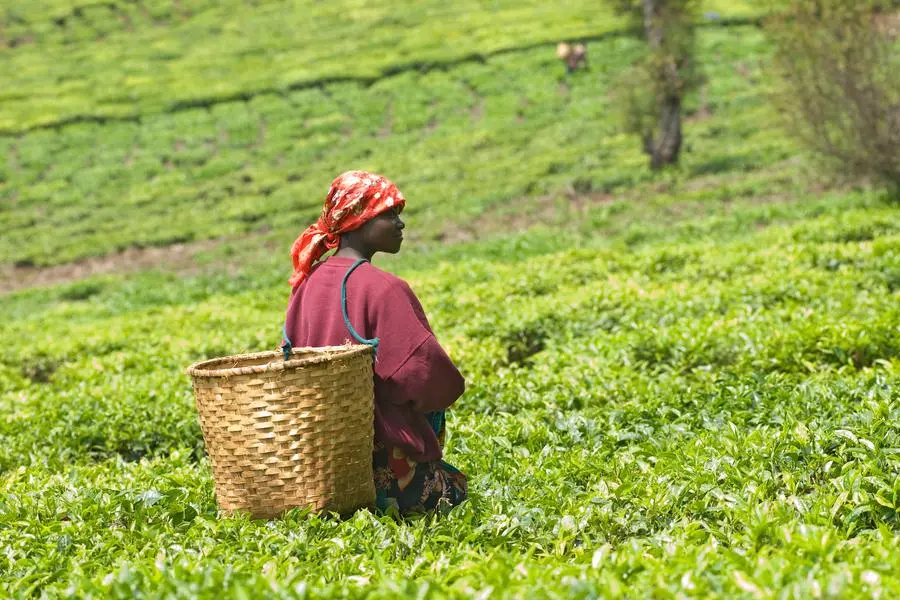PHOTO
Across Eastern and Southern Africa, more than 66 million people are projected to experience food stress or a food crisis, emergency, or famine by the end of this month. Conflict, climate change, and economic shocks have converged to prevent food from reaching some communities, depress yields and make staple items more expensive.
The World Bank’s latest Commodity Markets Outlook warns that the war in Ukraine has altered global patterns of trade, production, and consumption in ways that will keep prices at historically high levels through the end of 2024.
These high prices are hitting everyone, everywhere, but impact most severely poor households, who spend a larger share of their income on food, and young children, whose long-term prospects depend on adequate nutrition.
Our mission at the World Bank is to help developing countries end poverty and become prosperous and therefore mitigating the impact of the food crisis and preventing them in the future is critical for us.
In the short term, the World Bank is supporting social protection programmes that make a real difference. With cash in hand, households avoid making decisions that hurt them in the long run, they sustain food intake, avoid selling productive assets such as livestock, and keep children in schools.
For example, we recently approved $143 million in additional financing for Somalia’s national safety net programme known as Baxnaano, to help chronically poor and vulnerable Somali households overcome escalating drought and food insecurity conditions.
We have also triggered emergency financing as part of ongoing projects in countries such as Madagascar, Somalia, South Sudan and Mozambique.
Although agriculture tends to be underfunded in many countries, there is much that can be done to improve the impact of scarce public resources and improve development outcomes.
In Malawi, the World Bank is working with the government to improve the targeting of their fertiliser subsidy programme by supporting the most vulnerable households through better-adapted social protection programmes.
We are also working to reduce the cost and time required to trade food and improve the volume and quality of goods that are traded, to boost incomes and stability in the region.
The World Bank has provided financing to Burundi, the Democratic Republic of Congo and neighbouring countries within the Great Lakes region, to facilitate cross-border food trade, primarily targeting small-scale and women traders in border areas, by addressing poor infrastructure, reducing cumbersome trade requirements, improving the handling of food to reduce waste, and promoting trust between traders and border agencies.
Further south, the World Bank is unlocking opportunities for the people of Madagascar by improving the connectivity, resilience, and management of key roads to provide reliable and year-long access to the southern part of the country, which is most affected by food insecurity, and unlock a key agricultural region in the northwest.
Finally, climate shocks are occurring more frequently and with greater intensity, making investments to boost the resilience of food systems even more critical.
In the Horn of Africa, we are providing support to 1.6 million pastoralists and their dependents in Djibouti, Ethiopia, Kenya, and Somalia to cushion them from the impacts of climate-induced drought, commercialise livestock production, and ensure inclusion of marginalised and vulnerable groups, such as women.
An estimated $572 million in private capital will be leveraged to help pastoralists tap into drought insurance and savings, get access to digital accounts, and attract more private investment.
Climate-resilient food systems are also the focus of a new $2.3 billion regional programme, approved by the World Bank in June, available to eastern and southern African countries wishing to tackle the underlying structural challenges of food insecurity and address their vulnerability to unpredictable shocks.
Altogether, since April, we have committed about $4 billion in new financing to help countries in the region boost short- and long-term food security.
At a time of important fiscal constraints, it is important to stress that World Bank financing is often highly concessional — it comes with no or very low-interest charges, helping governments keep debt low and providing breathing room in times of crisis.
So, with more than 66 million people facing food stress or a food crisis this month, the marching orders could not be clearer: we must all work together to provide immediate support to the poorest households, provide well-targeted support to food producers to increase sustainable production, facilitate trade so that food goes where it is needed, and boost the climate-resilience of food systems for long-term stability and productivity in the face of growing challenges.
Victoria Kwakwa is vice-president for Eastern and Southern Africa at the World Bank. © Copyright 2022 Nation Media Group. All Rights Reserved. Provided by SyndiGate Media Inc. (Syndigate.info).





















